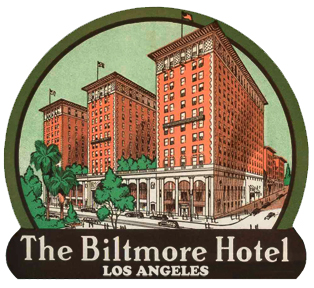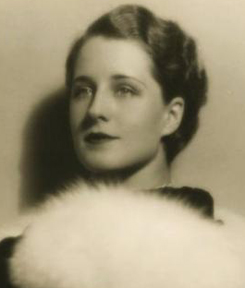Here are 10 things you should know about Charles Farrell, born 121 years ago today. Tall, dark and handsome, he was the cinematic ideal to millions of starry-eyed movie fans in the 1920s and ’30s.
Tag: Virginia Valli
365 Nights in Hollywood: Reckless Reels
Jimmy Starr began his career in Hollywood in the 1920s, writing the intertitles for silent shorts for producers such as Mack Sennett, the Christie Film Company, and Educational Films Corporation, among others. He also toiled as a gossip and film columnist for the Los Angeles Record in the 1920s and from 1930-1962 for the L.A. Herald-Express.
Starr was also a published author. In the 1940s, he penned a trio of mystery novels, the best known of which, The Corpse Came C.O.D., was made into a movie.
In 1926, Starr authored 365 Nights in Hollywood, a collection of short stories about Hollywood. It was published in a limited edition of 1000, each one signed and numbered by the author, by the David Graham Fischer Corporation, which seems to have been a very small (possibly even a vanity) press.
Here’s “Reckless Reels” from that 1926 collection.
RECKLESS REELS
 . . . a jazz band . . . colored spotlights . . . evening gowns . . . and stiff shirts . . . laughter . . . silver flasks . . . smacked lips . . . bluish-grey clouds of lingering smoke . . . The Biltmore ballroom on Saturday night . . . the new playground of the movie folk . . . Art Hickman . . .
. . . a jazz band . . . colored spotlights . . . evening gowns . . . and stiff shirts . . . laughter . . . silver flasks . . . smacked lips . . . bluish-grey clouds of lingering smoke . . . The Biltmore ballroom on Saturday night . . . the new playground of the movie folk . . . Art Hickman . . . Alma Rubens strolls along with Ricardo Cortez . . . softly on the heavily napped carpet . . . her gown of silver cloth and royal blue sparkles . . . Rick with his polished black hair . . . immaculate shirt and carefully fitted Tux . . . sparkles . . . murmurs of the “outsiders” sitting along the sides in deep chairs . . . Alma and Rick smile and speak to one or two couples passing. . . .
A very young chap and “deb” are about to enter . . . he notices a small sign—very small—“Couvert $1.50” . . . feels for his checkbook . . . a forced smile . . . she rambles on with a meaningless chatter . . . he rambles back . . . the gay “hello’s and how-are-you’s.” . . .
. . . the dance again . . . Priscilla Dean and her husband, Wheeler Oakman, are the first on the shiny floor . . . Hobart Henley, director, wanders over to Virginia Valli . . . he and Virginia dance . . . Hobart is amused at the throbbing, hot crowd . . .
Constance Talmadge enters . . . there are smiles . . . whispers . . . gasps . . . she is clinging to Norman Terry’s arm . . . he looks satisfied . . . the flappers’ hearts flutter . . . they join Mr. and Mrs. Earl Williams . . . Constance nods to a few around her . . . her press agent is there with a well known society girl, Dot Hubbard . . . Constance calls to him. . . .
A young man with streaks of grey at his temples sits alone in the far corner . . . he seems to be gazing at the interior decorations . . . they are beautiful and sparkling . . . he shifts to watch the constant stream of humans passing the entrance archway . . . there are actors, writers, business men, members of “The Nothing-to-Do-Club,” stately dowagers bedecked with diamonds, tottering old men still sowing their wild oats; gag men with serious faces; heroes with disgusted countenances, villains with heroine-winning smiles; comedians with Blue Law expressions; extra men and girls with eyes for those who “wonder who they are?” questions. . . .
Colleen Moore and her husband, John McCormick, saunter in . . . Ben Lyon is with Dorothy Dore . . . his latest wise-crack is “Since James Kirkwood made a picture entitled, ‘Discontented Husbands,’ what is Lila Lee doing?” . . . his friend Jack Santoro doesn’t laugh . . . Ben, however, is prepared and does his own laughing . . . he sucks grenadine punch through a straw in a tall, delicately wrought glass . . . Ben tells another one: “Now that the Culver City studio is making ‘The Purple Bathtub,’ can Harry Gribbon play the part of the color-blind plumber?” . . . Jack almost smiles . . . Ben laughs and decides to dance with Helen Ferguson again . . . Jack does ditto with Dorothy. . . .
Georges Jaimaie, expert on Paris lingo, does his stuff in French at the next table . . . Baroness d’Estreilles, American representative for Boue Soeurs in Paris, is displaying a new Parisian creation at Priscilla Dean’s table now. . . .
. . . the hurrying waiters add to the zest of the excitement . . . there is always excitement . . . roving eyes . . . searching for things to talk about . . . catty remarks . . . compliments . . . impromptu speeches on the film slump . . . unanswered questions . . . bits of scandal . . . criticisms on The Modern Girl . . . views on Life . . . invitations for next week’s dinners and parties . . . flirtations . . . lovers’ quarrels . . . slang . . .
Hollywood Undressed, Chapter Eleven
The eleventh chapter from Hollywood Undressed, a 1931 memoir attributed to the assistant of masseuse and health guru Sylvia Ulback, a.k.a. Sylvia of Hollywood (but actually ghost-written for Sylvia by newspaper reporter and screenwriter James Whittaker), tells of a close call experienced in treating actress Norma Shearer .
.
FAT CHANCE
 GLORIA runs quite an establishment—butlers, footmen, and the rest. Down on the Pathé lot she rolled up her sleeves and did her day labor like an old trouper. But at home she was La Marquise de la Falaise et de la Coudraye, and had the big soft rugs, uniformed servants, and all the dog to prove it.
GLORIA runs quite an establishment—butlers, footmen, and the rest. Down on the Pathé lot she rolled up her sleeves and did her day labor like an old trouper. But at home she was La Marquise de la Falaise et de la Coudraye, and had the big soft rugs, uniformed servants, and all the dog to prove it.The house staff gave Sylvia the works, which is to say that she passed through about ten pairs of hands, to land finally in an upstairs den. There time passed in great chunks without any sign of Gloria Swanson. The boss was dead tired and had to pinch herself to keep awake. Whereupon a footman ambled in with a clinking tray, and she tried just one for luck and was sunk.
She had no idea what time it was when, presently, someone shook her out of a sound sleep and said: “Here I am—all ready for you.”
It was Gloria in her nightie. A clear case of overwrought nerves, with the inevitable results of facial lines and general puffiness. The treatment for that is delicate. If you start in pounding and pummeling at the start, the subject’s nerves get worse and worse, and the result you’re likely to get is the kind of weight reduction that is ruin—a stringy, jumpy body and a cavernous, drawn look about the face.
In the first few minutes Gloria admitted that the new sound-movie racket had her half-crazy. It took the boss two hours of gentle, soothing rubbing to get the overexcited star to sleep. Meanwhile she was that the job would take time; that, for a start, she’d have to reconcile herself to getting maybe a little fatter than she was; that the real work on her hips, chin and arms would have to wait. Gloria saw the point and said:
“Then I’ll have to have you all the time. You’ve got to give up your other people and work for me alone.”
Right away the boss remembered how that hook-up had worked out with Mae Murray —and even with Mary Duncan. It meant having to build up her clientele all over again when the contract died.
—and even with Mary Duncan. It meant having to build up her clientele all over again when the contract died.
The offer from Gloria was flattering enough. But the boss had got past the point where the name of a movie star, whispered, was enough to jerk her out of a sound sleep. She was able to keep her head when Swanson made her offer, because, for one thing, the savings account was doing nicely, and, for another, she had just taken on Norma Shearer, whom she had been angling to get for months.
Hedda Hopper steered Norma Shearer into Sylvia’s hands. At that, the boss nearly lost the M.-G.-M. star after the first treatment, which was given in Shearer’s home. Norma had been playing a lot of tennis, and had got stringy and muscular and jumpy, the way women always do when they go crazy about any sport. The first thing to do was to calm her down and get her to sleeping regularly as a preliminary to softening her. So the boss rubbed her for nearly two hours and left her sleeping like a child. The next morning we got a phone call from Hedda Hopper, who said:
“I don’t know what you did to Norma Shearer, Sylvia, but my name is mud in the movies if you’ve ruined her.”
